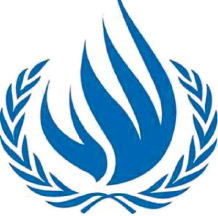|
Many countries flay Pillay’s oral update :
Unprecedented support for Sri Lanka at UNHRC sessions
by Manjula Fernando
Sri Lanka received unprecedented support at the UN Human Rights
Council (HRC) sessions last week with many countries criticising High
Commisioners Navaneetham Pillay’s oral update based on her visit to Sri
Lanka as ‘showing double standards’, ‘imbalanced’ and a ‘pretext to
exert political pressure’.
 Over 20 countries spoke in support of Sri Lanka while many others
protested that the discussion on Sri Lanka was politically motivated. A
number of countries including Venezuela, Belarus and Cuba has
disassociated from the US sponsored resolution. Over 20 countries spoke in support of Sri Lanka while many others
protested that the discussion on Sri Lanka was politically motivated. A
number of countries including Venezuela, Belarus and Cuba has
disassociated from the US sponsored resolution.
Russia said ‘using the HRC to settle political scores and gain
geopolitical benefits is unacceptable’. The Russian representative said
four years of ‘no bomb explosions and deaths’ prove that the internal
process is working in the interests of the people and the Council should
take note of it.
Russia also said that some assertions in Pillay’s submissions can be
construed as beyond her mandate, noting that the democratic elections in
the North, where Tamils had won, were possible due to the defeat of
terrorism.’
Emphasizing that extending capacity-building and technical
cooperation from the office of the High Commissioner should not be a
pretext to exert political pressure, China asserted that the primary
responsibility of promoting human rights lies within the country. Cuba
said this was one of the most politicised resolutions moved in the
UNHRC, adding that the report by Pillay did not recognise most of the
country’s achievements and this fact was disturbing.
The Pakistani delegate said the High Commissioner’s oral update does
not give due regard, recognition or acknowledgement of Sri Lanka’s
significant strides adding that the achievements in the aftermath of the
victory outweighed the challenges facing Sri Lanka. Belarus said
theresolution sponsors should re-assess their position and cooperate
with Sri Lanka through engagement and dialogue.
Venezuela rejected the selective interventionist attempts in the
internal process of countries while Australia said that engagement and
not isolation is the most effective way to promote human rights in Sri
Lanka.
These countries showed solidarity with Sri Lanka at the General
Debate under Agenda Item 10 of the Human Rights Commission sessions
which followed the previous day’s presentation of the Oral Update of the
High Commissioner for Human Rights on “Promoting Reconciliation and
Accountability in Sri Lanka.”
Sri Lanka’s Permanent Representative to the UN in Geneva Ambassador
Ravinatha Aryasinha, responded to her statement earlier saying that the
High Commissioner had no mandate to call for an external inquiry and set
deadlines for Sri Lanka’s internal probe.
Among the other countries that commended Sri Lanka’s achievements
were Japan, New Zealand, Norway, Egypt, Myanmar, Brazil, Thailand,
Kuwait and the Philippines.
|

